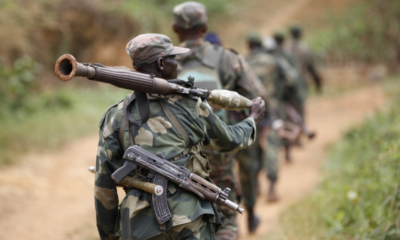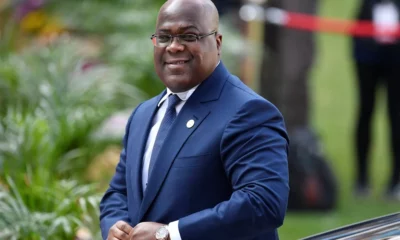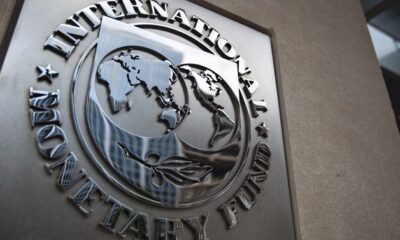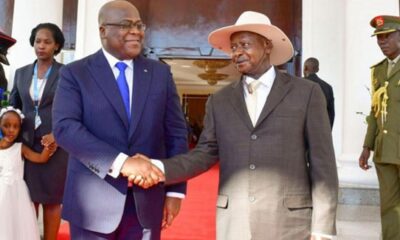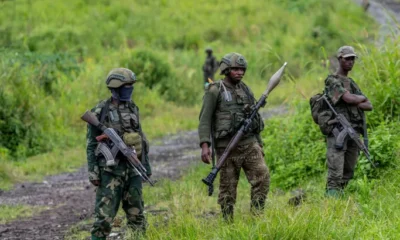Watching the upheaval in the Democratic Republic of Congo in recent days, one is tempted to invoke the African proverb that “the man who marries a beautiful woman and the farmer who grows maize by the roadside have the same problem.”
The police fired tear gas on Monday to disperse protesters who burned tyres and US and Belgian flags near Western embassies and UN offices in the capital Kinshasa, angry about insecurity in eastern Congo.
The protesters claim the West supports Rwanda, which they and their government accuse of backing the M23 rebellion, whose advance could see them seize the strategic border city of Goma in the east.
This is a new phase of what has become an entrenched tradition of the Congolese oscillating between blaming everyone else but themselves for their problems, and demanding that other people solve these problems, including fighting for them.
In recent years — rightly — the Congolese have railed, then attacked, the long-running and ineffectual United Nations Organisation Stabilisation Mission in the Democratic Republic of the Congo (Monusco) for not ending the rebellion in the east.
In late 2022, DRC’s kin in the EAC dispatched the East African Community Regional Force (EACRF) to separate the warring sides. Before long, Kinshasa and the people had risen against them, hounding them to go out to the jungle and fight the rebels for them. At the end of last year, EACRF left DRC with its tail between its legs.
Because the Congolese are our brothers and sisters, and we have a responsibility to love them, we also have a duty to tell them uncomfortable truths that will help them overcome.
So, we will return to our proverb. African proverbs are complicated. First, one needs to know that they passed into society through the mouths of men who were not feminists, so too many of them tend to portray women in bad light.
This one paints a heroic hard-working farmer (although it is mostly women, not men, who work the land in Africa) whose maize is stolen by passers-by, in contrast with the beautiful wife who betrays her husband and falls to the charms of other men.
However, African proverbs are also layered, so there is what they say, and the many things they mean. In this case, that people will covet a good thing — a good crop, a beautiful woman and, if we may add, a handsome, enterprising man. The “problem” here is how to keep your maize, beautiful wife, and enterprising husband. If you are better than all the men who hit on her, your beautiful wife will stay faithfully by your side.
Having your wife, husband, girlfriend or boyfriend run off with someone else can be very hurtful, but if you have a cantankerous truth-telling African aunt or uncle, they will also whisper to you that a partner whom no other man or woman has ever or will ever want is probably not worth having.
In real-world Congo politics, then, the reality is rebels will have friends and allies at home and abroad. Even Uganda’s Lord’s Resistance Army (LRA), as despicable as a rebel group can ever be, had friends outside who backed it.
The thing that should terrify everyone is a rebel group that no one wants to touch with a 10-metre pole, both in the day and night. The opposite is also true of rebels fighting to overthrow a government. If it is a government that doesn’t have a single friend even in the cynical world of geopolitics, then it’s probably worse than a cabal of cannibals.
For Congo, what is left is how to solve this “problem”. To stay with the farmer and the beautiful wife, what the Congolese are doing is like the strapping young man in old Africa who spent all his time attacking his parents, relatives, neighbours, and their friends because they failed to give him cattle to pay a bride price for a wife and build a hut for him to live in with her.
The scale of surrender of agency by many Congolese, including the political class and the government, is unsettling.
It’s partly understandable, too. The unusually brutal Belgian rule; the exploitation of all sorts of vultures for its vast minerals lasting over 100 years now; and an unbroken long spell of corrupt and cruel rule, have broken its self-confidence. The way to come to terms with the scale of failure and remain sane is to externalise all the problems to evil forces.
It has led to national paralysis, a belief that they can’t do much on their own to overcome.
DRC’s neighbours to the east, Uganda and Rwanda, offer good lessons. When President Yoweri Museveni took to the bush with his small band of rebels in 1981, the odds were stacked up against them. The British had a big programme with a special police force; the Tanzanian army that helped overthrow military dictator Idi Amin was on the side of the government, and hardy North Koreans soon got into the fight against them. They still won.
The prospects were even worse for the Rwanda Patriotic Army/Front when it crossed from Uganda and took to treacherous hills in 1990. Apart from Uganda, it was alone against the world, including one of the world’s superpowers at the time, France, which was in bed with the government in Kigali. They suffered setbacks, picked themselves up, and won.
Congo can win, but first, it will have to plant its own maize and fight its war for its own beautiful wife.
Charles Onyango-Obbo is a journalist, writer, and curator of the «Wall of Great Africans». Twitter@cobbo3
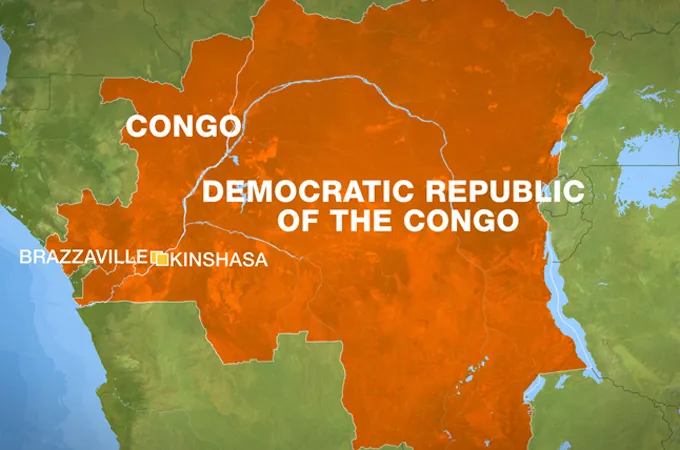

 Sports1 day ago
Sports1 day ago
 Metro18 hours ago
Metro18 hours ago
 Metro2 days ago
Metro2 days ago
 Tech2 days ago
Tech2 days ago

